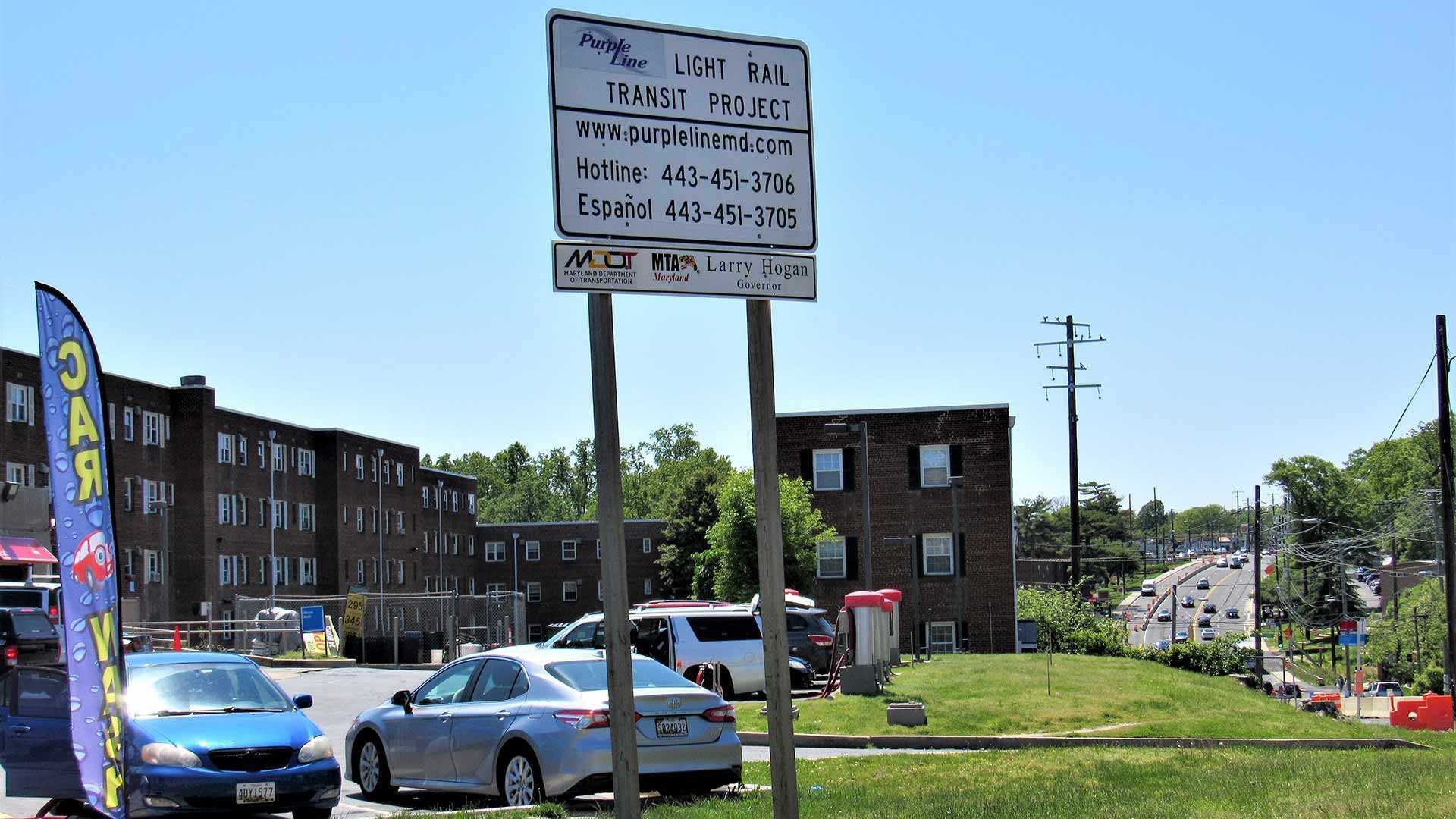- November 29, 2022
- By Maggie Haslam
The Federal Transit Administration has announced a $1.5 million grant to help the University of Maryland’s Purple Line Corridor Coalition (PLCC) develop a plan to add affordable housing, preserve small businesses and improve access for walkers and cyclists in neighborhoods at risk for gentrification and displacement along the coming light-rail route.
The two-year project prioritizes initiatives that researchers, policymakers and advocates have identified as critical to delivering equitable and sustainable transit-oriented development along the 16-mile corridor. When completed in 2026, the Purple Line will connect Montgomery and Prince George’s counties, with five of the 21 stops on or near UMD.
“This grant will enable us to dive deep on critical challenges in equitable development that have emerged over the last two years, while putting social justice and community engagement at the forefront,” said Sheila Somashekhar, director of the Purple Line Corridor Coalition, which is administered out of UMD’s National Center for Smart Growth.
The project scope includes planning to convert low-lying strip malls along the corridor to ensure the survival of existing businesses, many of which are in low-income or immigrant neighborhoods. The project will also help create an affordable housing pipeline, including developing new construction, rehabilitating existing stock and presenting a plan for generating capital and funding sources. The project team will also identify locations for bike and pedestrian investments—like bike lanes, sidewalks and traffic-calming measures—that connect surrounding neighborhoods to the corridor.
Grant funds, said National Center for Smart Growth Director Gerrit Knaap, will also enable hands-on coursework for UMD students and faculty that promotes social and climate justice, equity and the unique identities of corridor neighborhoods through center initiatives like the Small Business Anti-displacement Network and campuswide programs like the Partnership for Action Learning in Sustainability.
“Through the research, advocacy and work led by UMD, the PLCC has already made significant strides toward assuring that the Purple Line corridor remains an equitable and sustainable place to live, work and invest in, both before and long after rail service begins,” he said. “This grant will not only assure that such strides continue to be made but will sustain the foundation for pioneering and engaged research on how best to foster transit investments that benefit everyone.”
The Purple Line will be Maryland’s first transit line to connect the spokes of the Washington Metropolitan Area Transit Authority system (Metro) and represents one of the region’s biggest transit investments of the 21st century. The PLCC, a public-private-community collaborative formed in 2013, has led the creation of the Purple Line community development agreement, supported efforts with data and research, and coordinated action for inclusive and racially equitable development.
Awarded to the Maryland Transit Administration and administered by the coalition, the grant is the second-largest of 19 distributed this year through the federal agency’s Pilot Program for Transit-Oriented Development (TOD) Planning program and the second such grant awarded to the coalition; a $2 million FTA grant in 2018 funded the development of private and public partnerships, a feasibility analysis and initial planning work around land use. A September report released by the coalition to federal, state and local policymakers outlined those findings, which included projected double-digit percentage increases in the cost of single-family properties, and called for interventions such as more middle-income housing, renter support programs, technical assistance for small businesses and digital education programs to build the local workforce.
The new grant, said Somashekhar, will help the coalition push these recommendations forward and localize them to reflect the unique conditions of the diverse communities that line the corridor.
“This is about facilitating visions that are hyper-local and community-driven, but also working more comprehensively across PLCC’s issue areas,” she said. “So many of these challenges around redevelopment are artificially siloed, and we need to bring it all together.”
Topics
Research